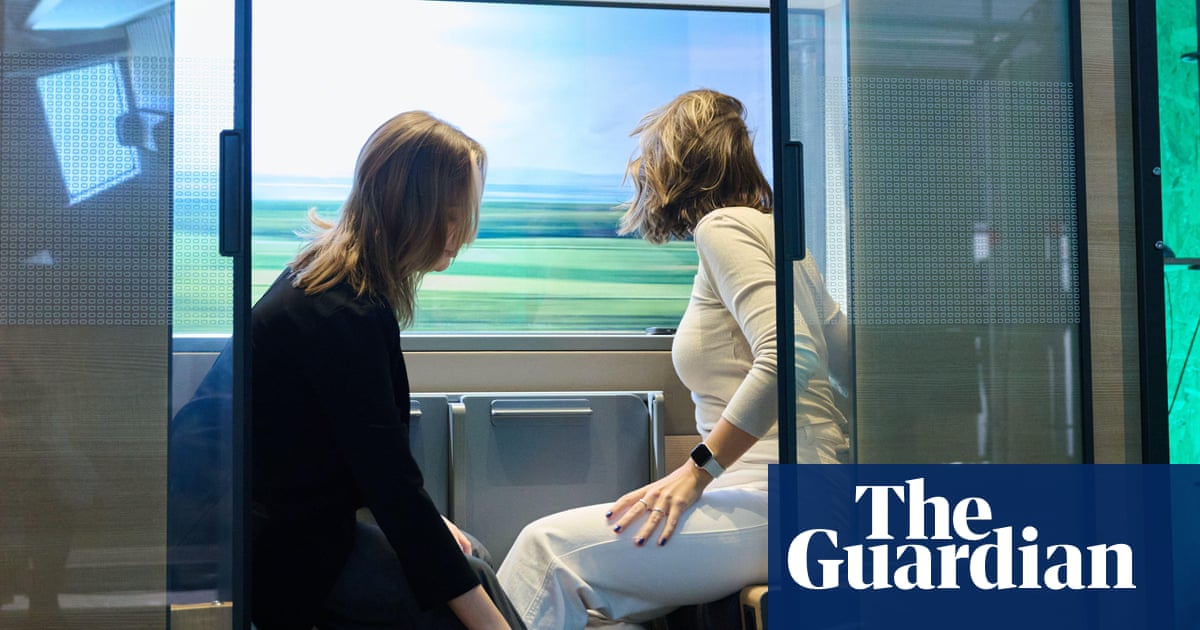Germany’s national rail company, Deutsche Bahn, has announced its plans for the future, with a multi-billion euro revamp which its bosses say will make it more efficient, more reliable – and more fragrant.
Digitalised railway stations, single-seat cabins and longer trains are among the promises, as well as buttons that passengers can press to diffuse relaxing scents.
At Kraftwerk, a former power station turned nightclub and events venue, on Wednesday, the carrier showed off the projects its engineers and product managers have been working on for the past five years.
Over a similar timeframe, the state-owned enterprise, which is under the control of the German government, has seen its reputation for efficiency, high speed and comfort plummet.
The biggest of its problems is an outdated and overloaded infrastructure, DB bosses readily admitted on Wednesday, meaning that too many trains are running on an outdated rail network.
In its own network status report last year, DB described the condition of the railway – the upkeep of which it is responsible for – as “old” and “prone to failure”. It said 48% of all signal boxes and 42% of all level crossings were in a “poor, defective or inadequate condition”.
Over the last two years, every third train has arrived late at its destination, according to an annual train punctuality report, with infrastructure, including aged, faulty trains, seen as the main cause.
Touted as one of the highlights of the company’s vision for the future was a cosy two-person carriage with sliding doors with privacy glass, the tint of which is controllable by each passenger from a silver button in the armrest.
Another innovation was a scent button fitted in doorways and station lifts to emit a soothing fragrance to calm travellers’ nerves.
Under the motto Starke Schiene or “robust tracks”, bosses promised a “railway fit for the future” by 2030, with improved booking facilities, digital complaint mechanisms, and better connection mobility between different providers from car-sharing to e-bikes.
AI technology should also contribute to more efficient engineering works, a spokesperson said, citing the overhaul of the busiest stretch of track, the 78km between Frankfurt and Mannheim. Starting after this summer’s Euro 2024 football tournament, the repair work is due to be carried out in five months by “bundling the tasks”, when the usual timeframe for the extensive works required would be a decade, the spokesperson added.
DB said it recognised the scrutiny it was under. “We welcome the attention this mammoth task will receive,” the spokesperson said.
He also said that much investment had been made in training guards and train managers to deal with irate passengers. “They must be thick-skinned, and humour is a necessary trait when we recruit,” he said, adding that many workers from outside Germany were being signed up due to a chronic labour shortage.

Emily Foster is a globe-trotting journalist based in the UK. Her articles offer readers a global perspective on international events, exploring complex geopolitical issues and providing a nuanced view of the world’s most pressing challenges.








